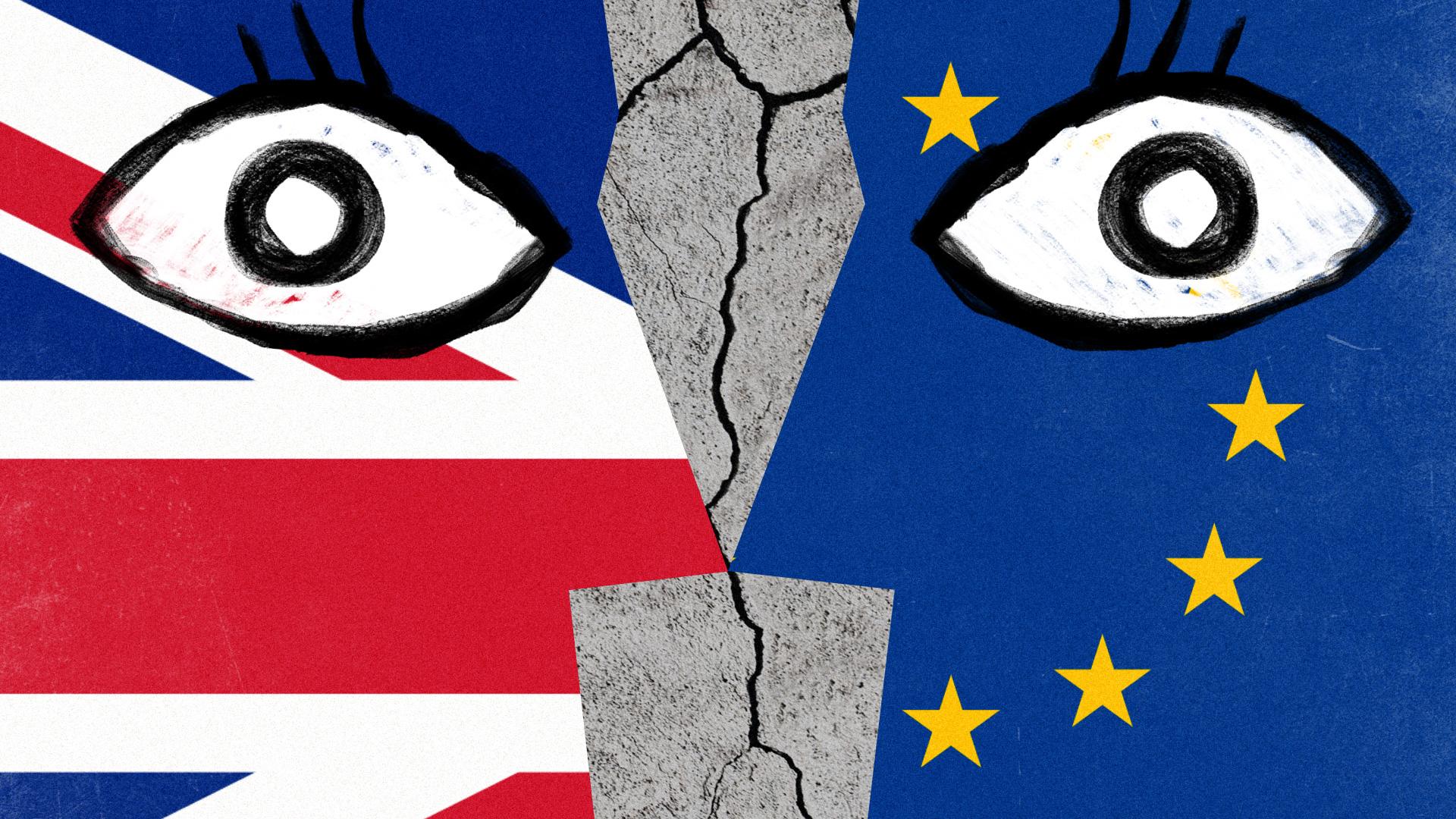Brexit: Will Brussels budge on the Irish backstop?
- Published
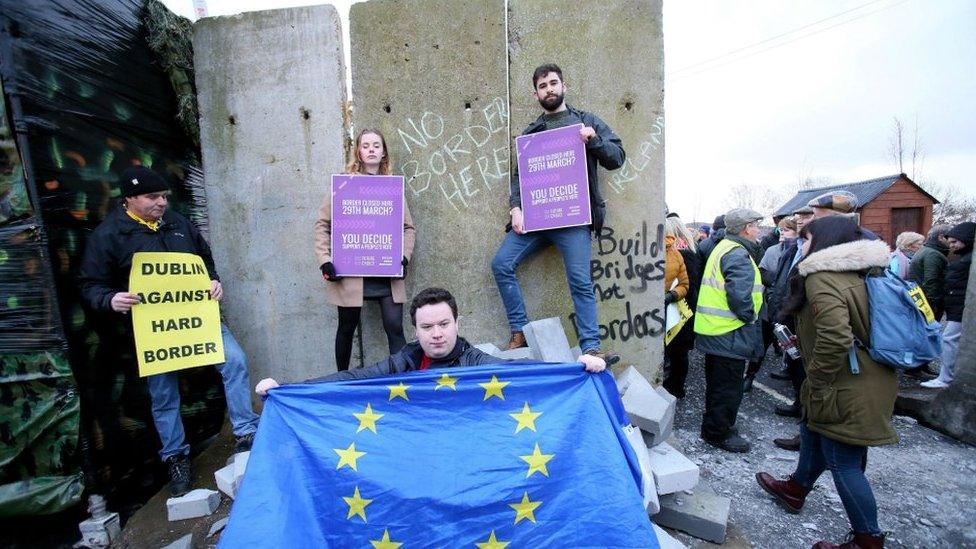
There is strong opposition to a hard border between the Republic of Ireland and Northern Ireland
Boris Johnson insists on them, Graham Brady is pushing hard for them, Prime Minister Theresa May seems to be praying for them and Dublin is deeply worried at the thought of them but will the EU ever actually "give in" and make changes to the backstop - that guarantee post-Brexit to avoid a hard border between the Republic of Ireland and Northern Ireland?
It's a tough one.
The EU certainly never intended to budge on the backstop - painfully negotiated with the UK over 18 months and signed off last November by Mrs May and her cabinet.
But Europe's leaders didn't imagine the UK would still be in such flux over Brexit so very close to B-day on 29 March.
Conversations I had with EU figures before Christmas saw my contacts confidently predicting that 2019 would see a no-deal Brexit (which they didn't believe UK MPs would allow to happen), Theresa May's Brexit deal being passed by parliament with cross-party support when MPs realised the looming risk of no deal (they thought this outcome the most likely), or no Brexit at all.
Read more:
But now there is spreading concern, as the EU's deputy chief Brexit negotiator, Sabine Weyand, pointed out on Monday, that the UK could end up "crashing out" of the EU - not intentionally but simply because time allotted by law for exit negotiations could run out before any agreement is reached.
Sabine Weyand: Risk of a 'crash out' is high
"The only reason there's still relative calm in EU circles about a no-deal Brexit is because we still have the popcorn out," one EU diplomat told me.
"We're mesmerised by the goings on in the House of Commons. But give it a few weeks: if nothing has changed, you'll soon see signs of panic in the (European) capitals."
Of course the EU wants to concentrate minds - for negotiating purposes - on the pain a no-deal Brexit will cause the UK but it will inevitably be costly and difficult for European citizens and businesses too.
Game planning
EU leaders won't want to be punished at the ballot box back home for not having done their best in the view of their voters to avoid all that, but you would be mistaken to then conclude Brussels will - when push comes to shove - pay any price to head off a no-deal Brexit.
Behind closed doors, of course, there is a certain amount of game planning going on but the EU is currently in watch and wait mode.
EU leaders believe the Brexit debate still has a way to run in parliament and they want to see which way the wind is blowing.
They hope if they stand firm and refuse to reopen the Brexit withdrawal agreement, then MPs could be tempted to unite around a softer Brexit than the one advocated by Theresa May - in order to avoid a no-deal Brexit.
Brexit vote explained in one minute
Some EU leaders dream of a second referendum, resulting - perhaps - in a Brexit reversal.
So put yourself in the EU's shoes for a moment: why make a move now as long as the above options appear (to varying degrees) to still be possibilities in the UK?
This is why we've recently heard the EU's chief Brexit negotiator, Michel Barnier, insisting that there is flexibility in the Brexit text on EU-UK future relations, whereas the backstop text is unchangeable.
The EU, as I mentioned earlier, wants very, very, very much to avoid making changes to the backstop.
A reminder again as to why:
Though sometimes scoffed at in the UK as an idea, the EU does indeed feel very much wedded to the Northern Ireland peace process, including cross-border co-operation, which it sees as having been very much facilitated by EU money and EU membership
The provisions in the backstop are not being forced by the EU on the UK. The text was negotiated bilaterally and no other alternative found. Brussels feels it's often forgotten that the UK-wide customs provision in the backstop was a UK request rather than an EU imposition
The EU will not want to sacrifice the concerns of member state Ireland "just" to achieve an exit deal (not even a final trade deal) with departing club member UK. Remember how the EU stood by Spain over Gibraltar when it came to the wording of the Brexit Withdrawal Agreement? Well, solidarity with Ireland over the Brexit backstop is considerably stronger amongst EU leaders than it was with Madrid at the time
The backstop is also a guarantee for the EU's single market. Don't forget, the land border between the single market and post-Brexit UK will run through the island of Ireland.
And the EU is thinking bigger picture too. If Brussels "caves in" to the UK over the backstop, there's a fear that could encourage Brussels-sceptic governments in member states Hungary, Italy and Poland, for example, to flout club rules. It could also send a message of weakness to international trade partners.
Ticking clock
Yet despite all that, if EU leaders were staring into the no-deal Brexit abyss come 1 March, then blink they might over the backstop. And there are the beginnings of whispers to that effect in some EU corridors.
Who knows now what changes the EU might eventually accept and it's very hard indeed to imagine them doing it without the OK from Dublin.
But mindful of the ticking clock, the European Commission appears to be trying to focus minds in the Irish government and beyond (remember Theresa May's repeated pledge to avoid a hard border on the island of Ireland?) on harsh realities.
Commission spokesman Margaritis Schinas - a man known to be extremely careful about what he does or doesn't say - last week pointedly announced that a no-deal Brexit would inevitably lead to some kind of hard border/ie physical checks.
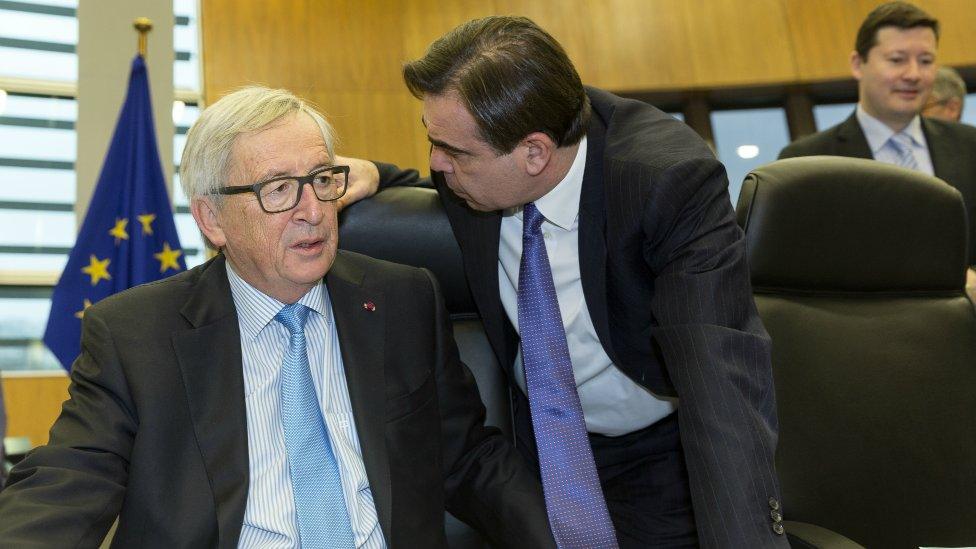
Margaritis Schinas (r) said if he was pushed to speculate it was "pretty obvious you will have a hard border"
But anyone in Westminster who thinks the backstop issue could magically disappear should definitely think again.
Not just in the context of the Brexit agreement but what comes after.
Ireland - as every other EU member - has a veto over any future EU-UK trade deal and could use it if Dublin felt the border wasn't adequately protected.
In conclusion, the EU will wait until the last minute to make concessions over the Brexit deal on the table.
It's not in the market to make changes here and there only for Theresa May to come back again and demand more.
That's why the message from EU leaders to the prime minister has been loud and clear. They have told her: "Don't bother coming back to us in Brussels until you can convincingly (i.e. not just by a couple of votes) show us once and for all that the majority of parliament is behind you."
- Published16 January 2019
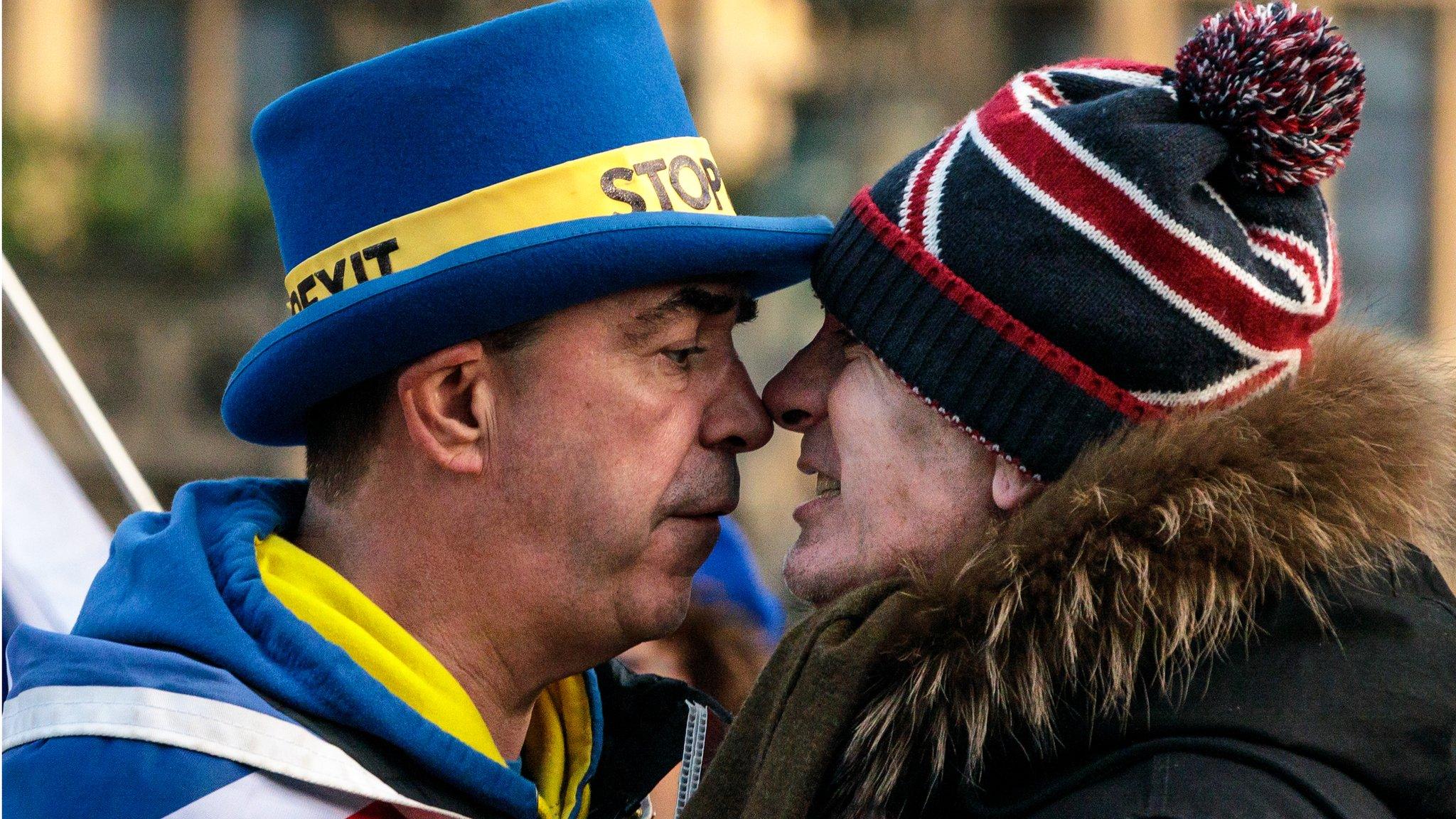
- Published30 July 2019

- Published19 December 2018
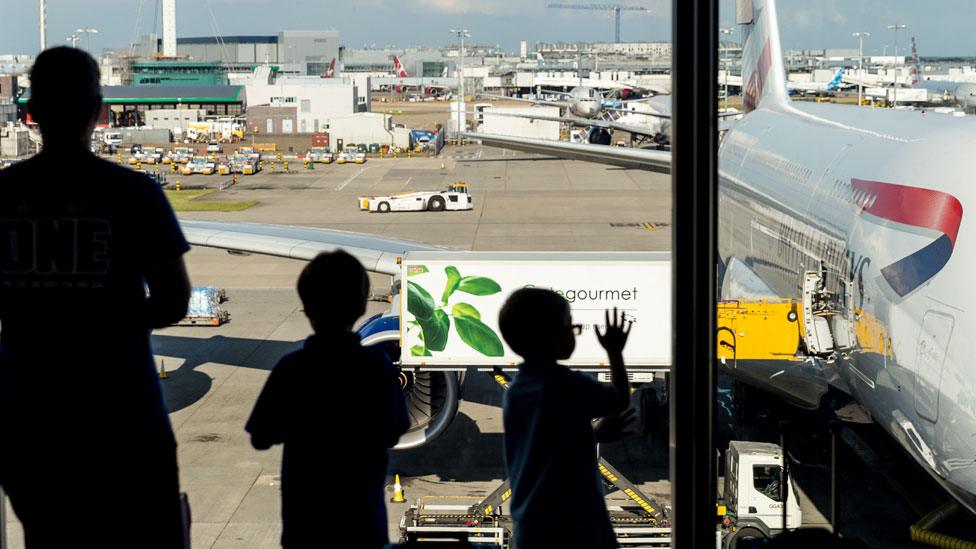
- Published18 December 2018
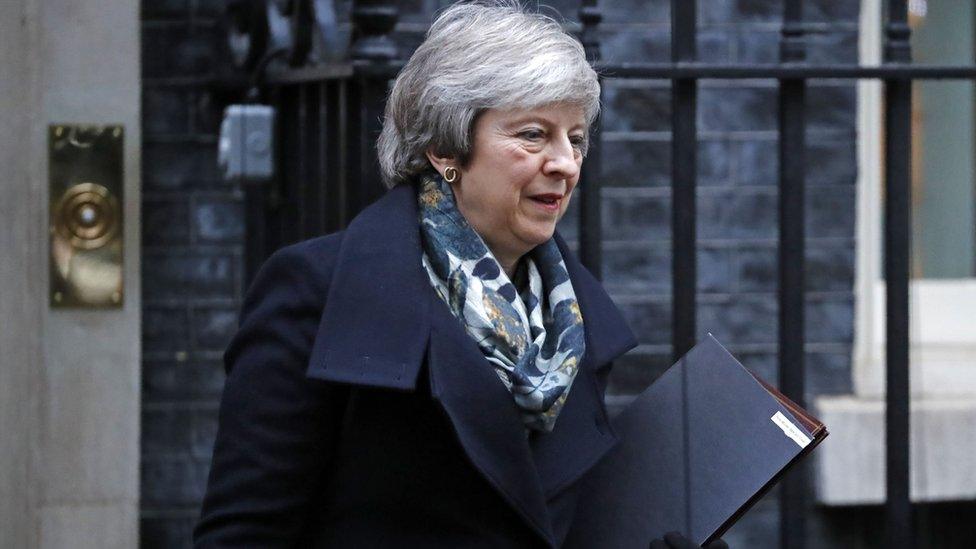
- Published29 January 2019
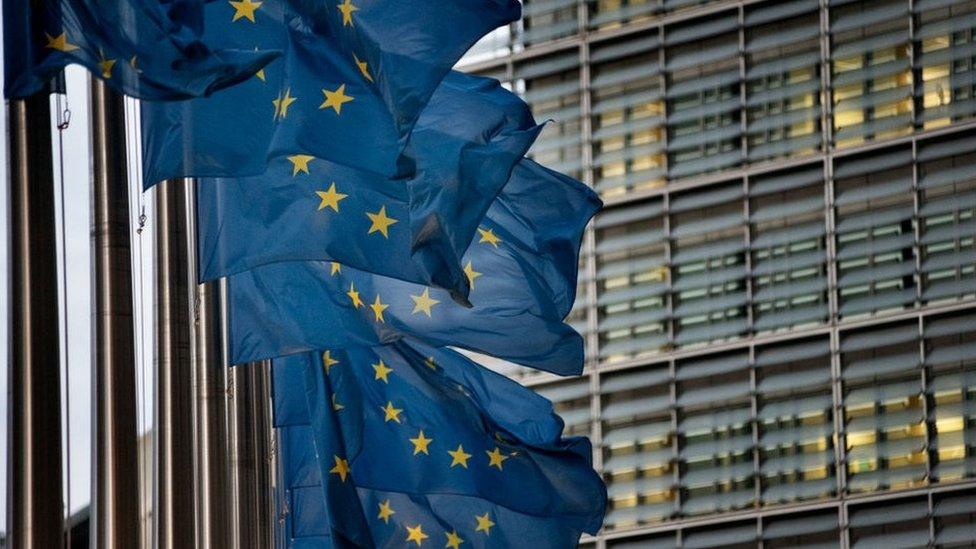
- Published13 December 2020
